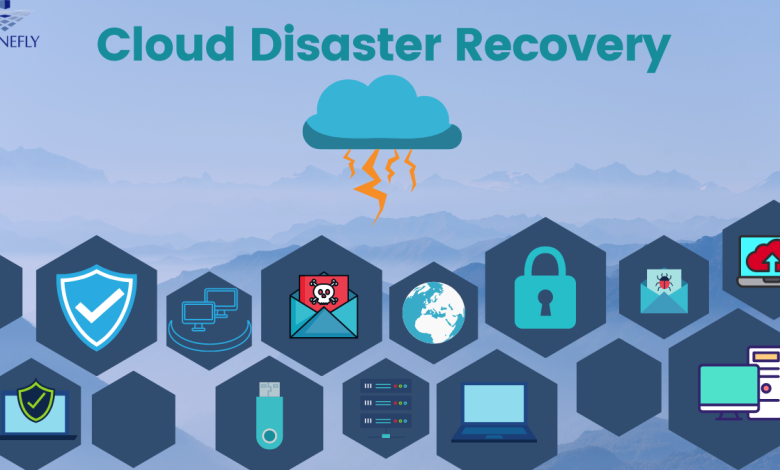What are the Advantages or Disadvantages of Cloud Disaster Recovery?

What are the Advantages or Disadvantages of Cloud Disaster Recovery?
Disasters can cripple businesses, leaving them struggling to get back on their feet. In some cases, it might be more advantageous for companies to utilize cloud disaster recovery services as opposed to investing in on-premises infrastructure. Alternatively, there could be disadvantages to using the cloud for disaster recovery purposes. This blog post will explore both the pros and cons of using cloud DR services.
What is Cloud Disaster Recovery?
Before we get into the advantages and disadvantages of using cloud disaster recovery services, it’s important to first understand what cloud disaster recovery is. Cloud DR is a strategy that utilizes the cloud to protect data and applications from disasters. This could be anything from a system crash to inclement weather.
Advantages of Cloud DR
There are several advantages to using cloud DR services, including:
1. Cost-Effective –
One of the biggest advantages of using cloud DR is that it’s cost-effective. When you use the cloud for DR, you only pay for the storage and bandwidth that you use. This can be a significant cost savings as compared to on-premises DR solutions, which can be expensive to maintain.
Must Read : How to choose the right air conditioner?
2. Scalable –
Another advantage of using cloud DR is that it’s scalable. As your data needs grow, you can simply scale up your storage and bandwidth usage. This is a major benefit as compared to on-premises DR solutions, which can be difficult to scale.
3. Fast Recovery –
Cloud disaster recovery can also provide fast recovery times. This is because data is stored off-site in the cloud, which makes it easy to retrieve in the event of a disaster.
4. Flexible –
Cloud DR is also flexible, as it can be used to protect data located anywhere. This includes on-premises data, as well as data located in the cloud.
5. Reliable –
When you use a reputable cloud provider for DR, you can be confident that your data is safe and secure. Additionally, many cloud providers offer redundant storage, which means that your data is always available, even if one storage location goes offline.
6. Easy to Use –
Cloud disaster recovery solutions are typically easy to use and set up. This is a major benefit, as it can help you get your DR solution up and running quickly.
7. Automatic Backups –
Many cloud DR solutions offer automatic backups. This can be a major benefit, as it can help ensure that your data is always backed up and available in the event of a disaster.
8. Increased Productivity –
When you use cloud DR, you can increase productivity by allowing employees to work from anywhere. This is because data and applications are stored in the cloud, which makes them accessible from any location.
9. Improved Business Continuity –
Cloud DR can also improve business continuity. This is because it provides a backup of data and applications, which can be used to restore lost data and keep operations running in the event of a disaster.
10. Disaster Recovery as a Service –
DR as a service (DRaaS) is a type of cloud DR that provides all of the benefits of cloud DR, without the need to build and maintain your own DR infrastructure. DRaaS is a cost-effective and scalable solution that can be used to protect data and applications from disasters.
Also Read : Root LG G3 With LG Root Download
Disadvantages of Cloud DR
There are some disadvantages to using cloud DR, including:
1. Internet Dependent –
One of the biggest disadvantages of cloud DR is that it’s internet dependent. This means that if your internet connection goes down, so does your ability to access your data.
2. Limited Control –
Another disadvantage of using cloud DR is that you have limited control over your data. This is because your data is stored off-site and is managed by a third-party.
3. Security Risks –
Another disadvantage of cloud DR is that there are security risks involved. This is because your data is stored off-site and is accessible over the internet.
4. Vendor Lock-In –
When you use cloud DR, you may be locked into a particular vendor. This can make it difficult to switch to a different vendor if you’re unhappy with the service.
5. Cost –
While cloud DR can be cost-effective, it can also be expensive. This is because you may need to pay for storage and bandwidth, as well as for the DRaaS solution itself.
6. Complexity –
Cloud DR can be complex to set up and manage. This is because you need to ensure that your data is backed up properly and that you have the right infrastructure in place.
7. Not Suitable for All Businesses –
While cloud DR can be a great solution for many businesses, it’s not suitable for all businesses. This is because it may not be able to meet the specific needs of your business.
8. Limited Support –
Another disadvantage of using cloud DR is that you may have limited support from your cloud provider. This is because you’re responsible for managing your own data and infrastructure.
9. Requires IT Skills –
If you want to use cloud DR, you need to have IT skills. This is because you need to be able to set up and manage your data and infrastructure.
10. Not a Replacement for Traditional Backup –
While cloud disaster recovery can be a great solution, it’s not a replacement for traditional backup.
Conclusion
We hope this article has given you a better understanding of cloud DR and its advantages and disadvantages. Cloud DR can be a great solution for many businesses, but it’s not suitable for all businesses.
FAQs
1. What is cloud disaster recovery?
Cloud DR is a type of DR that uses the cloud to store data and applications. Cloud DR can be used to protect data and applications from disasters.
2. What are the advantages of cloud disaster recovery?
Some of the advantages of cloud DR include increased flexibility, scalability, and reduced costs.
3. What are the disadvantages of cloud disaster recovery?
Some of the disadvantages of cloud DR include limited control, security risks, and vendor lock-in.
4. What is DRaaS?
DRaaS is a type of cloud DR that provides all of the benefits of cloud DR, without the need to build and maintain your own DR infrastructure.
5. Is cloud disaster recovery a replacement for traditional backup?
No, cloud disaster recovery is not a replacement for traditional backup. Cloud DR can be used in addition to traditional backup to provide a complete disaster recovery solution.



